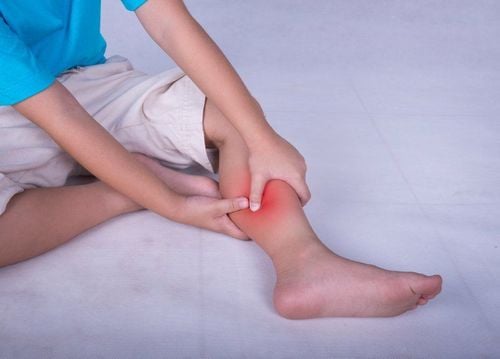The frequent occurrence of infants tensing and stiffening can be a source of concern for many parents. However, this phenomenon is relatively common among newborns, and nearly all infants will experience it to varying extents and with diverse underlying causes.
1. Causes of Infant Tensing and Stiffening
Various factors can contribute to infant tensing and stiffening. Among the more prevalent causes are the following:
1.1. External Stimuli
External stimuli are frequently the initial precipitating factors for infant tensing and stiffening. These stimuli may include noise, light, or an uncomfortable or damp sleeping environment. Additionally, the infant may be experiencing hunger, the need to urinate, or the urge to defecate.
In certain instances, constricting or damp clothing and diapers can induce discomfort in the infant. In such cases, a thorough assessment of these factors should be conducted prior to investigating other potential etiologies for infant tensing and stiffening.
1.2. Infant muscle tension due to physiological factors
It is quite common for newborns and one-year-olds to experience periods of muscle tension and body stiffening.This phenomenon can often be attributed to the natural physiological processes associated with incomplete neuromuscular development.
Typically, these episodes of muscle tension resolve spontaneously within 3-5 minutes. If, while the baby is stiffening, they keep crying or have vomiting, or even if they are picky eaters or have prolonged slow development, you should take them to the doctor as soon as possible.
The nervous system transmits signals to the muscles, and the muscles respond by contracting. Muscle contraction creates force for us to perform movements. The coordinated activity of the nervous system and the muscular system will create movements that help us walk, stand, talk, laugh…
Muscle contraction disorders can result from psychological factors, often affecting sensitive children. In some cases, increased neuromuscular excitability arises from imbalances in ions involved in the muscle contraction process. Acute muscle dystonia may also occur due to toxin-related acute poisoning. It can also be caused by congenital muscle dystonia or a genetic disease.

1.3. Infant muscle tension may be due to calcium deficiency
Calcium deficiency can contribute to episodes of muscle tension and stiffening in newborns. Calcium is an essential mineral for their development, with a significant impact on the human body. Especially, calcium also plays a crucial role in nerve transmission.
When babies do not receive enough calcium, the nervous system will operate at a weaker capacity and may be disordered. Therefore, babies stiffening their bodies may be due to nervous system disorders caused by calcium deficiency.
1.4. Other medical conditions associated with infant muscle tension
In addition to the above causes, the phenomenon of babies tensing up may be due to the baby having some other medical conditions such as:
- Skin diseases;
- Insect bites causing itching and injury. Babies' skin is very sensitive, so when there is a burning or itchy red feeling, they will be very uncomfortable and react immediately.
2. Is it dangerous for children to frequently experience muscle tension?
When young children, such as 9-month-olds, frequently experience muscle tension, or older children regularly display muscle tension during sleep or play accompanied by the following signs, parents should take them to a medical facility for evaluation:
- With newborns who often show signs of difficulty sleeping, both day and night they cannot sleep for 15-17 hours in the first 5-6 months.
- Older children if they often wake up many times at night,startling, restlessness, excessive sweating, vomiting, hair loss, and poor weight gain.
In such cases, more than 90% of the cause is vitamin D deficiency starting from the womb, which can also be an early indicator of rickets in children.
3. What to do when babies often experience muscle tension?
Understanding the situation and monitoring the baby's episodes of muscle tension to identify the cause of stiffening is essential. Pay attention to how long the episodes of muscle tension typically last. During these episodes, observe whether the baby shows any other signs or any unusual symptoms.
- If the baby often has stiff limbs, you should pay attention to checking external factors. First, you should check if the baby's sleeping place is comfortable, if the light in the bedroom is okay, if it is noisy around the baby's sleeping place.
- Check if the type of diapers and clothes the baby is using are causing itching or skin damage to the baby.
- If the muscle tension persists, a review of the infant's dietary intake is warranted to ensure adequate provision of essential nutrients for the baby, especially calcium. You should also know how to balance the baby's daily menu to ensure no lack of other nutrients.
- If episodes of muscle tension continue and are accompanied by persistent crying, frequent vomiting, or developmental delays. You need to take the baby to the doctor as soon as possible to find the real cause of this situation.

4. When should you take your baby to the doctor if they often experience muscle tension?
Many parents believe in folk remedies and apply them to treat their children's illnesses without finding the exact cause of the disease. Folk methods of treating stiffening in children are often: Steaming, applying leaves, applying heat, removing hair on the back,...
However, infants' skin is extremely delicate, so you need to remember that you should not use the above methods to treat stiffening to avoid causing adverse effects on children. If you are worried about your baby's stiffening to the point of turning red in the face, see a doctor instead of self-treating arbitrarily.
Babies who often experience muscle tension due to hypocalcemia typically show symptoms of increased neuromuscular excitability, such as being easily startled and having restless sleep. These babies are also more prone to mental stimulation.
In particular, you need to pay attention to the skin folds located in the neck, groin, armpits, thighs, calves of the baby,... to see if there is erythema, inflammation, or ulceration. If the baby is startled, fussy accompanied by red rash, diaper rash, you should take the baby to the doctor for appropriate support and advice
To arrange an appointment, please call HOTLINE or make your reservation directly HERE. You may also download the MyVinmec app to schedule appointments faster and manage your reservations more conveniently.








